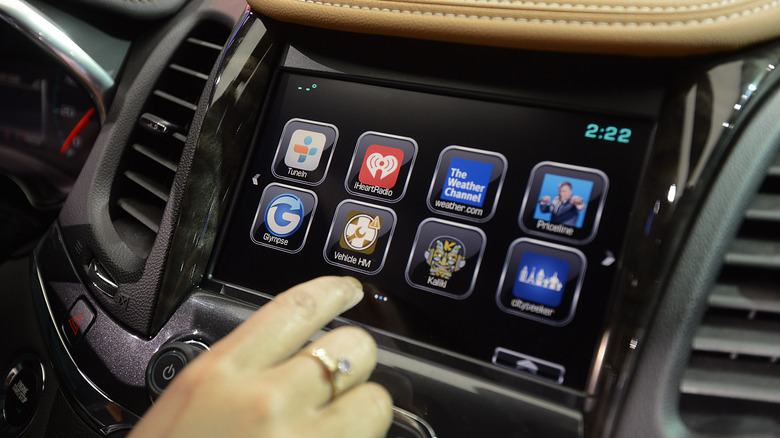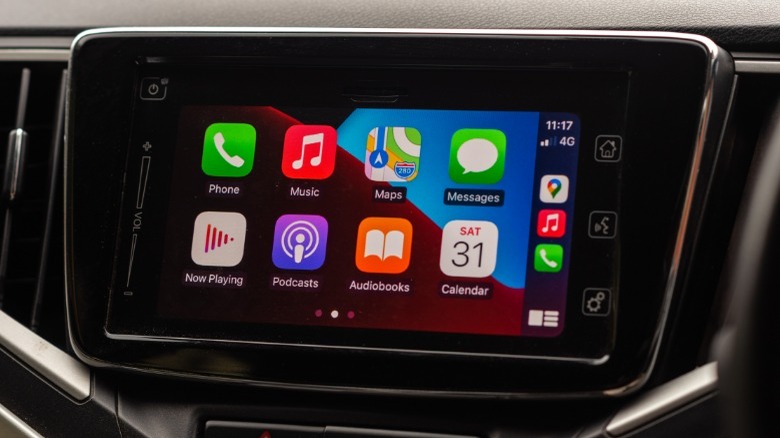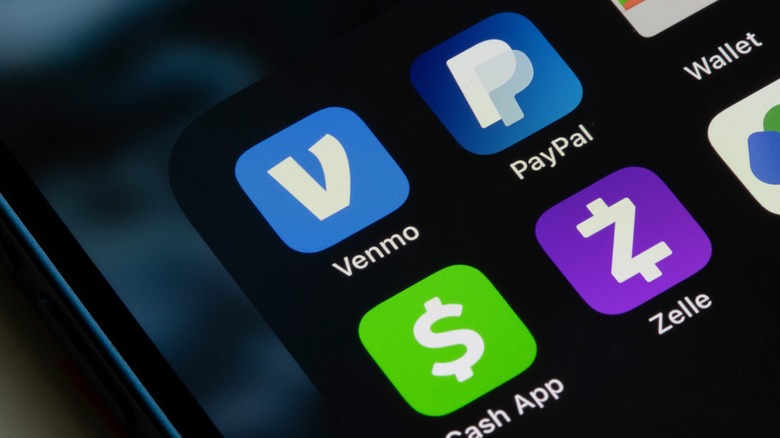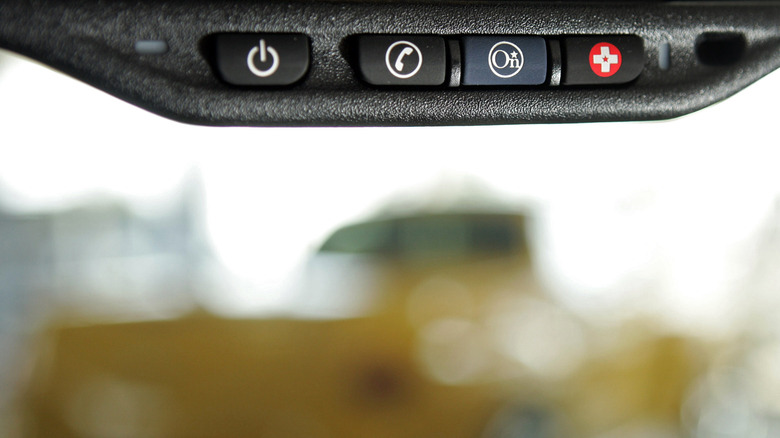4 Reasons An OnStar Subscription Isn't Worth It
In the 1990s, automobile companies were actively seeking ways to add more tech into vehicles, aiming to not only make cars more convenient but also safe, making the overall driving experience better. It was during this time that the concept of OnStar emerged thanks to General Motors, one of the world's largest vehicle manufacturers, who played a pivotal role in the development of the service.
Today, OnStar offers a range of features to its subscribers, including GPS navigation, cellular communication, entertainment, emergency assistance, remote vehicle diagnostics, and stolen vehicle tracking. However, even with all its benefits, it's worth doing the math on just what OnStar offers you and what existing services you might have with devices on your wrist or in your pocket or purse.
As a subscriber, or someone considering a subscription, it's important to look beyond the headline features and consider the long-term perspective. While OnStar's features may be useful to many, those with a recent smartphone could discover that they're paying for duplicate or similar services.
Pricing may be a sticking point
Let's just start by pointing out the obvious. If you purchase a new vehicle from GM, it often comes with a hefty OnStar free trial — often five or ten years for some services. Even if you barely use the service, OnStar is definitely worth it for free. When the trial expires you may also get a very generous offer from OnStar, aiming to get you to continue with the service. Depending on the offer, this may also make sense.
However, if you haven't got a free trial or a killer offer, costs can add up fairly quickly when it comes to OnStar. Its most premium package will set you back just under $50 per month. The cheapest plan, "Preferred," still carries a hefty price tag — coming in at $29.99 per month. Modular pricing is an option, so you can choose to only pay for breakdown cover and the potentially life-saving "Guardian" app if that is all you think you need, or you can single out an infotainment package if that's what you prefer. But even then, the pricing doesn't make OnStar a better deal than similar services, and dealing with modularity takes away from the hassle-free "all-in-one" style service that may be OnStar's main selling point in this day and age.
Things have moved on, and OnStar may be lagging behind
While OnStar may have offered a unique and cutting edge package of safety, information, and entertainment tools that was pretty impressive a decade or so ago times have changed. The likes of Android Auto and Apple CarPlay, paired with apps like Spotify, Tidal, and YouTube Music, have most people's infotainment needs covered.
Even what is arguably the feather in OnStar's cap, crash detection, has a free and widely available alternative. iPhones and Apple Watches also have a crash detection feature, which is able to discern when you might have been in an accident. If you are unresponsive, it will then call the emergency services with your exact location. This doesn't cost you anything extra, it's included with a product you may already own. Vehicle diagnostics can also be added to any car for what is in most cases a reasonably priced one-off purchase.
If we are to mitigate for OnStar, we could argue that it's possible to forget a phone and/or watch, and those devices can run out of battery. Whereas you're protected every time you get into a vehicle with a relevant OnStar subscription. Equally, the crash detection feature is included with breakdown coverage, and in a pricing tier that rivals other breakdown services like AAA. But on the flipside, coverage from AAA will apply to a member no matter what vehicle they are in at the time, and the iPhone's safety features follow you everywhere too.
Cellular data usage may force you to go premium
OnStar relies on the AT&T cellular network to function, and access to said network is not free. This means a data plan is needed in addition to whatever OnStar services you happen to be using. All of the essential services OnStar includes, like GPS and vehicle tracking, will eat into that plan, as will all of the service's infotainment options. OnStar offer an "unlimited" data plan for $25 a month or $250 per year — but at that price you may be better off just shelling out for one of the service's premium plans. The Premium plans have unlimited data bundled in, which arguably makes them far better value than a basic plan and a data bundle. But you've just suddenly let GM upsell you from $30 per month to $50 in the process.
To make matters worse, something like Android Auto or Apple Car Play provides many of the same services and uses your cellphone's data plan — which is likely included in your monthly bill already. The need for an entirely separate data plan massively increases the costs associated with OnStar, and essentially renders the cheaper options on offer useless. It all but guarantees you will end up paying over $500 per year for the service, no matter what options you select.
Limited Usage for some customers
Coverage is based on AT&T's cellular service, which for the most part is pretty good. However, there are noticeable gaps, especially in rural areas, where you can go for miles without getting a signal. Then there are other factors which can affect your connection.
OnStar itself says "Coverage is based on cellular and wireless network capabilities and is not guaranteed. There are a variety of factors that can impact coverage, including terrain, foliage, buildings, construction and more." Cellular services also have a certain bandwidth, so a large number of users on the network can also affect coverage. So in certain areas of the United States, you might not be getting everything you're paying for most of the time.
Another major downside is the OnStar Guardian app, which is arguably the service's best feature, will not work if you have no cell service. This means if you're in a crash, your vehicle won't be able to contact the emergency services. It's particularly bad as the rural areas with less coverage are also areas where that coverage is more vital — as you are less likely to be discovered by a passer by. This is also another tick in the "consider an iPhone instead" box, as Apple's "Emergency SOS" feature is designed to help you call for help in areas where you can't get a standard cellphone signal.




